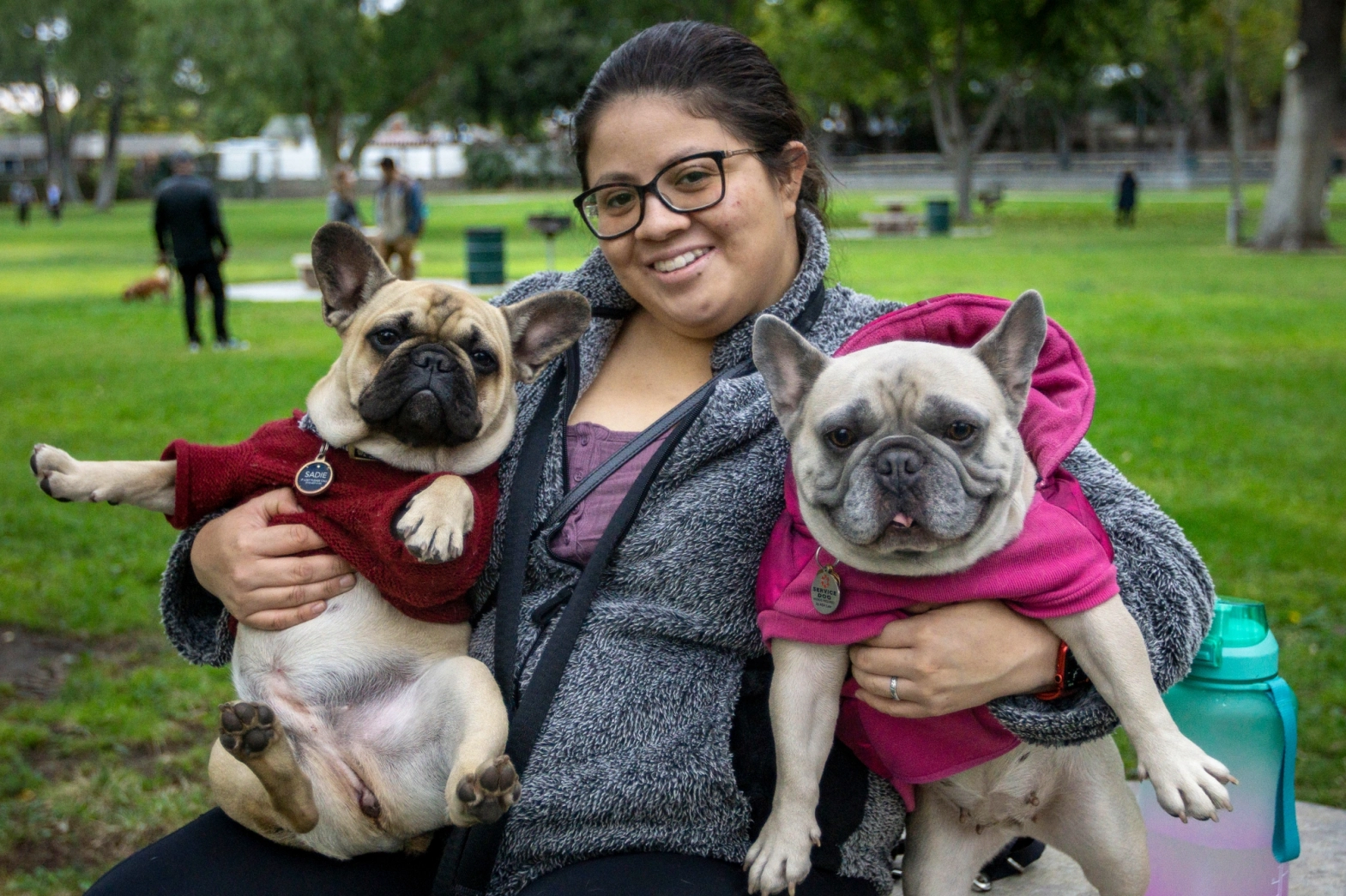For almost Aleja Stephenson entire life, people she should have been able to trust were the ones who let her down the hardest, who hurt her the most.
She was born to a teen mother who was addicted to drugs and had been incarcerated — and who then left.
Though Stephenson was soon adopted, life with her adopted family was hard. She said she felt as if she was never fully accepted, and she sometimes felt afraid. As a teenager, she said she was abused by a stranger when living with extended family members for a short time.
But Stephenson, 21, has long been her own strongest advocate. After her adoptive parents gave her up at 15, and her option was moving in with a different extended family in Southern California, she chose instead to walk herself to a social services office and re-enter the foster system.
“I felt staying with them would have held me back from being the person I wanted to become,” she said.
Though she encountered more struggles during her years in foster care, sometimes bouncing to different residential facilities around the state, Stephenson said that she also began to feel personal freedom she hadn’t known before.
“By actually going into foster care, I feel like I found myself, I found my voice, and I found some purpose. I’m able to be who I am. I didn’t have people judging me or criticizing me,” she said.
As a foster youth, she was assigned an attorney to represent her in court proceedings, but the attorney didn’t always respect her wishes, she said.
Then Roxanne Romell, the managing attorney at East Bay Children’s Law Offices in Oakland, subbed in for Stephenson’s attorney one day.
Stephenson said Romell embraced the organization’s motto that children should be seen and heard, and they hit it off quickly. Romell replaced Stephenson’s previous attorney permanently.
“She shocked me when she used to come to my house and visit me,” Stephenson said. “She became like my sidekick. When I needed help, she was always there for me. Even for things that didn’t end up in the courtroom, she was still there giving me advice, guiding me.”
The East Bay Children’s Law Offices received grant funding this year from Share the Spirit, an annual holiday campaign that serves residents in need in the East Bay. Donations to the program will help support 56 nonprofit agencies in Contra Costa and Alameda counties. The grant will help the organization purchase holiday gifts for their youthful clients and restock its inventory of books, toys and gift cards for children when they are placed into homes.
Stephenson said the law center was there for her after she was laid off from her job at a theme park in the early days of the pandemic.
She was living in a transitional housing program, focusing on healing from her personal trauma and dealing with alcohol abuse, when her therapist recommended she get an emotional support animal.

Though she got the proper documentation for the French bulldog she ended up choosing, her housing administrator tried to prevent her from keeping the animal, threatening her with eviction.
But Romell stepped in to help.
“She took hold of the situation,” Stephenson said. Attending meetings on Stephenson’s behalf, Romell ensured the dog, Lil Mama, would get to stay, and the young woman would keep her housing.
“If I wasn’t able to have that back then and (Romell) didn’t help advocate for me and help my voice be heard, I don’t know where I would be,” Stephenson said. “She didn’t just seem like a lawyer to me — she seemed like a friend, somebody that had my back.”
Her positive experience inspired Stephenson to help others coming up through the foster system.
She’s now working as a youth advocate for Alameda County. And she’s volunteering with the children’s law offices as part of a newly formed youth advisory board, which is putting together a survey for some of the roughly 1,300 foster youth represented by the organization.
“Youth should be able to feel like I feel with my lawyer,” Stephenson said. “They should be able to have that connection.”
Regan Bradley-Brown, a staff attorney on the advisory board, said the group’s aim is to figure out where the organization “is doing a great job representing our youth, and where we could be doing better and listening to them, making sure their voices are elevated and amplified.”
She said having Stephenson — who only just aged out of foster care when she turned 21 — on board is a boon for everyone, as she brings valuable firsthand experience.
“You don’t see a lot of foster youth who come back to be involved,” Bradley-Brown said. “To come back so quickly after aging out of the system to provide help, it really just shows her leadership and her passion, her drive.”
Stephenson said she’ll continue working with youth and hopes to eventually open her own short-term residential therapy program for teenagers, planning to call it “Fearless Residential.”
“Making positive change where I can makes me feel like I’m giving back to a community that saved me,” she said.
Share this:
- Click to email a link to a friend (Opens in new window) Email
- Click to share on Facebook (Opens in new window) Facebook
- Click to share on X (Opens in new window) X
- Click to share on Bluesky (Opens in new window) Bluesky
- Click to share on LinkedIn (Opens in new window) LinkedIn
- Click to share on Nextdoor (Opens in new window) Nextdoor
- Click to share on Reddit (Opens in new window) Reddit
- Click to share on Mastodon (Opens in new window) Mastodon
